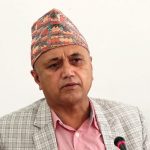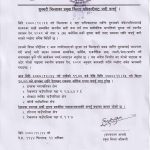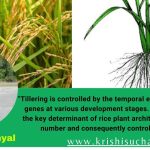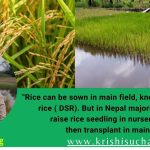Legal provision to register and obtain patents of local landraces in Nepal

A patents is the right granted by a government to an inventor to exclude others from imitating, manufacturing, using or selling the inventive in question for commercial use during the specified period. Patents are granted for;
I. An invention including a product
II. Innovation/improvement in an invention
III. The process of an invention/product
IV. A concept
Patent requirements
A patents is a contract between the inventor and society wherein the inventor discloses every detail of his invention in return for the protection granted to him by the society to control the commercial aspects of his invention to the extent that it is not detrimental to the society. The major requirements for the grant of patent are as follows;
i. Novelty: The invention should be new, original and not disclosed in the public through any type of publication anywhere in the world.
ii. Inventiveness: The invention should not be apparent, rather it should be innovative.
iii. Industrial application and usefulness: The invention must have utility value to the industries, either at once or at future and the society/nation should be benefitted from it.
iv. Patentability: The subject matter of the patent must be patentable under the existing laws and acts.
v. Disclosure: The inventor is required to describe his invention in detail so that a normal person can reproduce it. In case of biological entities, if they have been genetically modified, the nature and the method of medication should be described in detail.
Limits of a patent
i. Limitation of time: A patent is valid for a specific period of time from the date of its award, generally 15-20years.
ii. Limitation of space: a patent is valid only in the country where it is awarded unless a group of countries may have agreed to honour the patent. E.g. European Economic Community, WTO, etc.
Procedure for patenting
An inventor flies a properly prepared application (according to the prescribed pro forma) to the patent office of the country. The application is investigated by patent officials, if it is suitable for patenting, the invention along with the details of the patent is published for all concerned. If the invention fulfils all the patent requirements, the patent is re-awarded immediately after expiry of this period.
Legal provision involved in registering and obtaining the patent of local landraces
A patent owner of the seed or plant material will have exclusive right to prevent third parties from propagating, selling or importing that material, assign or transfer the patent by succession and also conclude the licensing contracts. Nepal government has the provision of patent right under “The Patent, Design and Trade Mark Act, 2022 (1965)”. The legal provision involved in registering and obtaining the patent of local landraces is explained below;
1. Acquisition of patent right
A person who desire to obtain patent right of any local landraces should register it in their name under the provision of “The Patent, Design and Trade Mark Act, 2022 (1965)”. No one shall copy or use or cause to use in the name of the others without the transfer of ownership or written permission of the patent registered in the name of any person pursuant to this Act.
2. Application for acquiring right over patent
The person who wish to acquire patent should submit an application to the Department of Agriculture explaining;
3. How and in what manner he/she obtained the local landrace.
4. Process of manufacturing, operating or using it.
5. Map and drawing of the local landrace and its location.
6. Investigation by department
After the submission of the application, the department, on the advice of experts will conduct investigations or studies to ascertain whether the patent of the local landrace in the application fulfils the criteria or not and decides whether or not to register such patents. In case the patent should not be registered, the applicant is informed with the reason.
7. Registration of patent
After completing necessary investigations, the department will issue a registration certificate to the applicant. The patent except those which should be kept secret in the national interest are published to the public by the department in Nepal Gazette. In case anyone has any objection to such a patent may file a complaint to the department within the period of 35days from the date of seeing or copying the patent and the necessary actions will be taken after the investigations.
In this way one can register and obtain patent of local landraces in Nepal. The patent will be valid only for 7years from the date of issue and should be renewed then after. The patent should also be submitted to National Archive with a copy of the design or model of the article manufactured according to the patent registered under this Act.
Writer: Bharat Acharya

 एउटा यस्तो विषालु भ्यागुता, जसको मुल्य नै पर्छ ३ लाख, जान्नुहाेस्
एउटा यस्तो विषालु भ्यागुता, जसको मुल्य नै पर्छ ३ लाख, जान्नुहाेस्  भोलि र पर्सि बालबालिकालाई भिटामिन ए खुवाइदै
भोलि र पर्सि बालबालिकालाई भिटामिन ए खुवाइदै  खगराज अधिकारी गण्डकीको मुख्यमन्त्री नियुक्त
खगराज अधिकारी गण्डकीको मुख्यमन्त्री नियुक्त  सुनसरीमा दुवै पक्षबीच सहमति, कर्फ्यु खुकुलो हुदै
सुनसरीमा दुवै पक्षबीच सहमति, कर्फ्यु खुकुलो हुदै  स्टेफेनको शतकमा आयरल्याण्ड वोल्भ्सले नेपाल ए लाई दियो २८५ रनको लक्ष्य
स्टेफेनको शतकमा आयरल्याण्ड वोल्भ्सले नेपाल ए लाई दियो २८५ रनको लक्ष्य 


